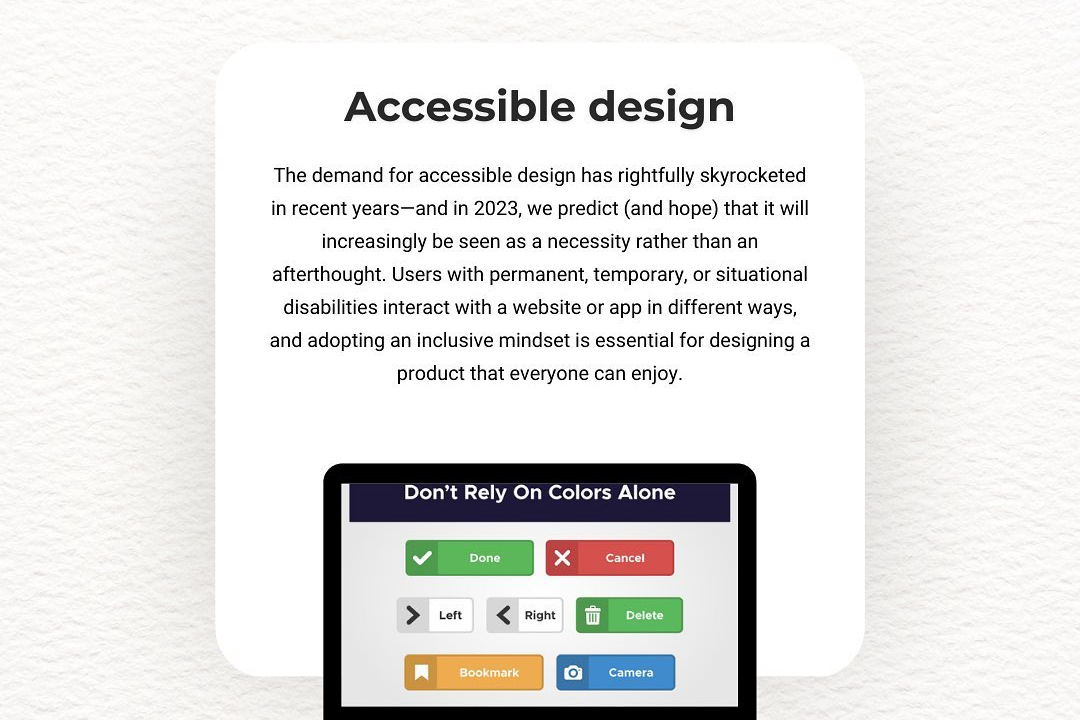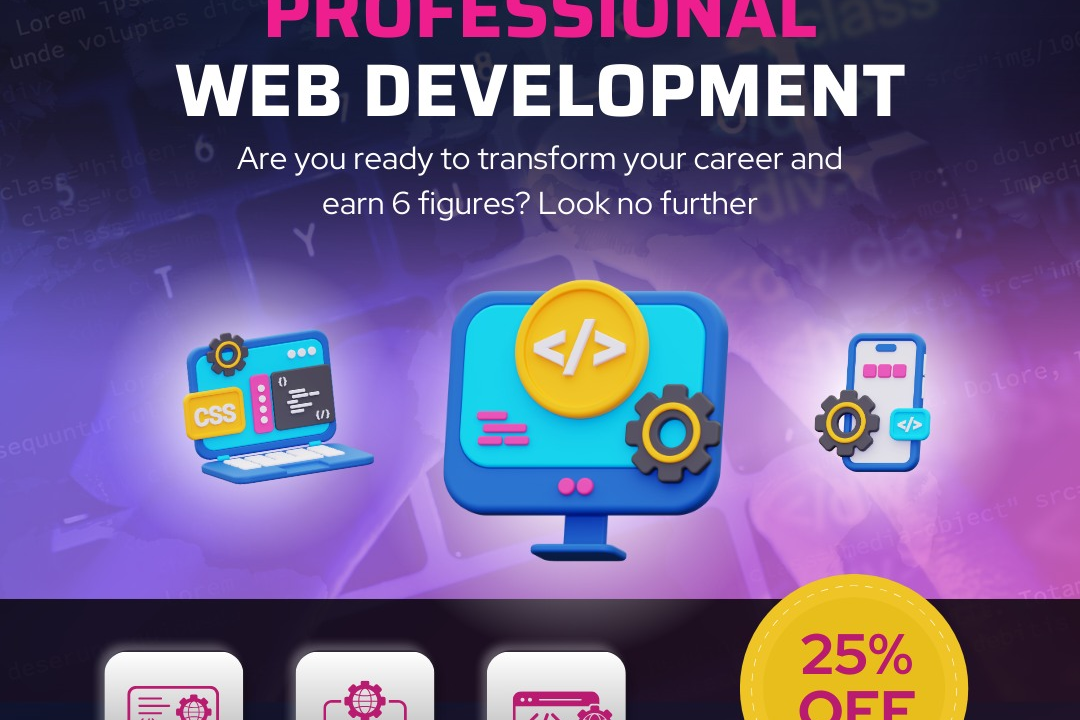Selenium Training In Chennai Sulekha
Selenium training in Chennai through Sulekha offers aspiring software testers and developers a compr
Selenium Training In Chennai Sulekha
Selenium training in Chennai through Sulekha is an invaluable opportunity for individuals looking to excel in the field of software testing. The course provides a thorough understanding of the Selenium framework, enabling participants to automate web applications efficiently. With the increasing demand for quality assurance in software development, gaining expertise in Selenium can significantly enhance job prospects in the tech industry. The training includes real-time projects, which allow learners to apply theoretical concepts in practical scenarios, thus building confidence and proficiency in automated testing. This training not only fosters essential skills but also prepares individuals for various roles in software development and quality assurance.
To Download Our Brochure: https://www.justacademy.co/download-brochure-for-free
Message us for more information: +91 9987184296
Selenium training in Chennai through Sulekha is an invaluable opportunity for individuals looking to excel in the field of software testing. The course provides a thorough understanding of the Selenium framework, enabling participants to automate web applications efficiently. With the increasing demand for quality assurance in software development, gaining expertise in Selenium can significantly enhance job prospects in the tech industry. The training includes real time projects, which allow learners to apply theoretical concepts in practical scenarios, thus building confidence and proficiency in automated testing. This training not only fosters essential skills but also prepares individuals for various roles in software development and quality assurance.
Course Overview
The “Selenium Training in Chennai through Sulekha” course offers a comprehensive curriculum designed to equip participants with the essential skills needed for automated web testing using the Selenium framework. Covering fundamental concepts, advanced techniques, and best practices, the course provides in-depth knowledge of Selenium WebDriver, TestNG, and integration with tools such as Maven and Jenkins. Fueled by hands-on experience with real-time projects, learners will gain practical insights into creating, executing, and maintaining automated test scripts. This training is perfect for aspiring software testers and quality assurance professionals looking to enhance their capabilities and improve the efficiency of their testing processes in a rapidly evolving tech landscape.
Course Description
The “Selenium Training in Chennai through Sulekha” provides an extensive curriculum aimed at empowering aspiring software testers with the skills necessary to excel in automated web testing. This course covers key concepts, including the Selenium WebDriver, TestNG, and best practices for test automation. Participants will engage in hands-on training with real-time projects, enabling them to create, execute, and manage automated test scripts effectively. By the end of the course, learners will have a robust understanding of Selenium's functionalities and will be well-prepared to implement automation frameworks in their projects, enhancing their career prospects in quality assurance and software testing.
Key Features
1 - Comprehensive Tool Coverage: Provides hands-on training with a range of industry-standard testing tools, including Selenium, JIRA, LoadRunner, and TestRail.
2) Practical Exercises: Features real-world exercises and case studies to apply tools in various testing scenarios.
3) Interactive Learning: Includes interactive sessions with industry experts for personalized feedback and guidance.
4) Detailed Tutorials: Offers extensive tutorials and documentation on tool functionalities and best practices.
5) Advanced Techniques: Covers both fundamental and advanced techniques for using testing tools effectively.
6) Data Visualization: Integrates tools for visualizing test metrics and results, enhancing data interpretation and decision-making.
7) Tool Integration: Teaches how to integrate testing tools into the software development lifecycle for streamlined workflows.
8) Project-Based Learning: Focuses on project-based learning to build practical skills and create a portfolio of completed tasks.
9) Career Support: Provides resources and support for applying learned skills to real-world job scenarios, including resume building and interview preparation.
10) Up-to-Date Content: Ensures that course materials reflect the latest industry standards and tool updates.
Benefits of taking our course
Functional Tools
1 - Selenium WebDriver: Selenium WebDriver is the core component of Selenium used for automating web applications. It allows testers to write scripts in various programming languages such as Java, C#, Python, and Ruby. The WebDriver interacts directly with the browser, enabling users to perform tasks like clicking buttons, entering text, and navigating between web pages. This tool is essential for creating comprehensive test cases that mimic real user interactions, making it crucial for the automation testing process.
2) TestNG: TestNG is a testing framework inspired by JUnit and NUnit, designed to address the limitations of these older frameworks. It offers powerful features like annotations, grouping, and parallel execution of tests. TestNG allows for better organization of test cases and suites, making it easier to manage large test scenarios. With its flexibility, TestNG also enables data driven testing, where the same test can run multiple times with different inputs, greatly enhancing the testing efficiency.
3) Maven: Maven is a build automation tool that simplifies the process of managing project dependencies in Java applications. In the context of Selenium training, Maven enables students to handle libraries required for their projects seamlessly. By managing the project’s build lifecycle, Maven allows for easy integration of Selenium and other testing tools, ensuring all dependencies are automatically downloaded and updated. This streamlines the development process and helps students focus on writing effective test scripts.
4) Jenkins: Jenkins is an open source automation server that supports continuous integration and continuous delivery (CI/CD). It helps automate the building, testing, and deployment of applications, allowing students to see the entire software development lifecycle in action. Through Jenkins, learners will set up a CI/CD pipeline that integrates their Selenium tests, enabling them to automatically run tests each time code changes are made. This practical exposure to continuous testing is invaluable for understanding modern software development practices.
5) Git: Git is a version control system that allows developers to track changes in their code, collaborate with others, and maintain a history of their projects. In the Selenium training program, students will gain essential skills in using Git for source code management. They will learn how to create repositories, commit changes, branch out new features, and merge code back into the main project. Understanding Git’s functionality is crucial for any modern software engineer, as it facilitates collaboration and effective code management in team environments.
6) Cucumber: Cucumber is a tool used for behavior driven development (BDD) that allows for writing tests in a human readable format, bridging the gap between technical and non technical stakeholders. In the Selenium training, students will see how Cucumber enables them to write acceptance tests in plain English using Gherkin syntax. This approach enhances communication within teams, ensuring that testing aligns with user requirements. By integrating Cucumber with Selenium, learners can automate their BDD tests, making their testing frameworks more intuitive and accessible while emphasizing the importance of stakeholder involvement in the testing process.
7) Page Object Model (POM): Page Object Model is a design pattern that enhances test automation by promoting maintainability and code reusability. In the Selenium training program, students will learn how to implement POM to create a repository of objects for each web page. This encapsulation allows them to separate the test logic from the UI elements, making the tests cleaner and easier to manage. By using POM, learners will find it simpler to update tests when application changes occur, as modifications will only need to be made in one place.
8) Selenium Grid: Selenium Grid is a tool that allows for running tests on multiple environments and browsers simultaneously, significantly increasing testing efficiency. During the training, students will understand how to configure Selenium Grid to execute their test scripts in parallel across different machines. This capability is essential for teams that need to ensure cross browser compatibility and reduce the time taken for test execution, ultimately leading to quicker feedback during the development cycle.
9) API Testing with Postman: In addition to UI testing automation with Selenium, students will explore API testing using tools like Postman. Understanding API testing is crucial as it complements Selenium training, allowing learners to validate backend services and endpoints. During the training, they will learn how to create, execute, and automate API tests, ensuring that both front end and back end functionalities work as expected together. This holistic testing approach prepares students for real world scenarios, where both UI and API testing are vital for project success.
10) Error Handling and Debugging: Effective error handling and debugging are critical skills for any automation tester. In the Selenium course, students will learn how to identify, handle, and troubleshoot common errors encountered during test executions. They will be trained on implementing strategies to improve the stability of their test automation frameworks, such as implementing retries, logging information, and creating custom error messages. This understanding will enable students to develop resilient test scripts that can gracefully handle unexpected situations.
11 - Test Case Design Techniques: To create effective test automation, students will explore various test case design techniques, such as boundary value analysis, equivalence partitioning, and decision table testing. Understanding these techniques enables learners to craft comprehensive test cases that cover a wide range of scenarios, ensuring thorough validation of the software being tested. By applying these methodologies, students will enhance the quality of their test suites and ensure that they are targeting the most critical paths in their applications.
12) Continuous Testing: Continuous testing is an integral part of the DevOps culture. In the Selenium training, students will learn about its principles, focusing on integrating automated tests into the development pipeline. They will explore how to set up automated tests to run with every build and the importance of providing quick feedback to developers. This training prepares learners for modern software development practices, emphasizing the importance of maintaining software quality while enabling rapid delivery.
13) Reporting and Analytics: Effective reporting is crucial for conveying test results and providing insights to stakeholders. In the Selenium training, students will learn how to generate detailed test reports using tools like Extent Reports or Allure. These reports not only present testing outcomes but also include visual analytics, such as graphs and trends, that help track quality over time. Understanding how to present test data clearly enables testers to communicate progress effectively and make informed decisions.
14) Framework Development: Students will gain exposure to developing custom test automation frameworks using Selenium. This includes learning how to establish a structured approach to writing and organizing tests, as well as integrating different tools and libraries. By designing their own frameworks, learners will better understand best practices in test automation and be able to adapt their skills to fit the unique needs of their projects or employers.
15) Industry Best Practices: The training will cover various industry best practices in test automation, including the importance of maintaining clean code, following coding standards, and implementing version control in testing projects. This knowledge prepares students to work effectively in professional environments, ensuring that they contribute positively to team dynamics and project outcomes. Familiarity with these best practices also instills a sense of responsibility in learners as they embark on their careers in software testing.
Browse our course links : https://www.justacademy.co/all-courses
To Join our FREE DEMO Session:
This information is sourced from JustAcademy
Contact Info:
Roshan Chaturvedi
Message us on Whatsapp:
Email id: info@justacademy.co
Good Learning Websites For Manual And Automation Testing For Begineers












